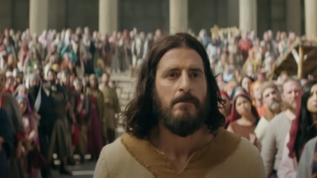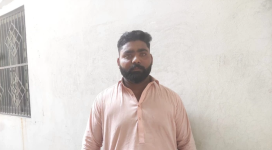The second day of the United Methodist Church’s General Conference began with a challenge to giving financially, and ended with a call to connect spiritually, Wednesday, April 28, 2004.
“Our attitude is one of giving until it hurts, rather than heals. Everything is focused on our limited resources when, in fact, if United Methodists would give until it heals we would have so much money to facilitate God’s mission in the world that conferencing would be a celebration of sharing rather than our experience of divvying up a shrinking pie,” said the Bishop Bruce Blake of Oklahoma during the morning worship service.
Bishop Blake challenged the 2,000 attendees, half of whom were voting delegates to the quadrennial conference, to re-connect grace and giving, by living a gospel of giving until it heals.
Following the morning service, the Churchwide Council on Ministries proposed a means to join missions and finances through a “Connectional Table” in the denomination. Under the guidelines entitled, “Living into the Future,” UMC leaders from around the world, including Africa, Asia, Europe and North America, will coordinate the work of the denomination’s agencies. These leaders will work in conjunction with the Council of Bishop and the current agency officials to monitor the ministries’ budgets, which add up to more than $125 million per year.
The Connectional Table will mainly merge two functions by January 1, 2007: the General Council on Ministries and General Council on Finance and Administration. Ten other agencies will also be represented at the table, but they would continue to retain their own board of directors.
“The plan is about bringing mission and money to the same table,” said Darlene Amon, a delegate from the Virginia Annual Conference and one of the voices in the video describing the benefits of “Living into the Future.”
One of the proponents to the proposal, Bishop Joseph Yeakel, said, “A rejection of the plan by General Conference would amount to the church choosing to “retain a disconnected structure.”
The delegates will vote on the proposal next week.
In a separate address, Lay leader Gloria Holt challenged the delegates to let go of “me, myself and I” to become “we, ourselves and us.” Holt, who delivered the General Conference Laity Address, pointed out the tension between the laity and clergy, where each is unwilling to become equal partners in ministry.
“If clergy are singing their own song while the laity are dancing to their own beat, how in the world are we going to get in sync with one another?” she asked. “Unless we do, the church will not be creating the music for which God gave us the notes.”







